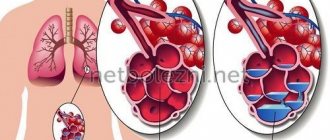Toxicosis during pregnancy
During pregnancy, many changes occur in a woman's body. And often they lead to malaise, nausea, and even vomiting. This is toxicosis, which is observed in more than half of pregnant women. The main reason for it is hormonal changes in the body or a reaction to the presence of foreign DNA. But pathologies of the liver, stomach, and cardiovascular diseases can also cause nausea.
It is believed that women are more predisposed to the appearance of toxicosis during their second pregnancy, as well as in adulthood. With multiple pregnancies, the risk of developing toxicosis also increases.
Typically, a woman begins to feel nauseated from the 5th week and this condition continues for 1-2 months. Then the woman’s body adapts, and her condition returns to normal. In the early stages, toxicosis rarely occurs in a severe form; most often, nausea worries a woman in the morning. But if pathologies of the digestive organs worsen, discomfort can be complicated by malaise, vomiting, and weakness. Only in this case can the doctor prescribe special medications. But in general, in the early stages it is better not to take any medications.
Toxicosis in the later stages is caused by other reasons. It occurs less frequently, but is more severe. Nausea occurs due to an increase in the size of the uterus, which puts pressure on the organs of the gastrointestinal tract. It appears after eating, with sudden movements or bending. In this case, you can take antiemetics, but also only as prescribed by a doctor.
Indications for taking tablets
It is not always possible to cope with the manifestations of toxicosis using improvised means. Intensely manifested symptoms can cause harm to the baby and the psycho-emotional state of the expectant mother.
In difficult cases, the doctor may prescribe medications for toxicosis during pregnancy and admit the woman to a hospital for round-the-clock monitoring of her condition.
Anti-vomiting tablets during pregnancy are prescribed in the following cases:
- if vomiting occurs repeatedly during the day and is not related to food intake, interest in food is lost, the sense of smell and taste changes;
- weakness, depression, depression, apathy, signs of malaise;
- indifference to what is happening, unwillingness to perform daily duties, indifference;
- weight loss of several kg;
- deterioration in the quality of the skin, dryness, pallor, coating on the tongue;
- acetone smell when breathing;
- stable subfebrile temperature up to 37.5 °C.
Even if the above symptoms can be tolerated, it is worth remembering that there is a high probability of hidden pathologies inside the body that can only be detected by laboratory methods. The symptoms cannot be ignored, since we are talking about the safe development of the fetus.
How to relieve nausea
It is impossible to unequivocally answer the question of what helps with nausea during pregnancy. Most women cope with this condition on their own only with the help of diet and folk remedies. But some may require medications. In case of severe toxicosis, help can only be provided by a doctor who will determine its cause and can recommend methods to eliminate nausea.
Read also: Diet for biliary dyskinesia
But usually a woman is recommended to lead a healthy lifestyle and eat right. You should take a walk every day, as movement and fresh air improve digestion. It is recommended to exclude fatty, spicy foods, hot dishes from the diet, and eat in small portions.
With a mild degree of toxicosis, you can get rid of nausea using folk recipes:
- eat a banana, dried apricots or a spoonful of honey;
- instead of tea, drink a decoction of mint, yarrow and calendula;
- drink cranberry juice with lemon;
- A decoction of ginger root is effective;
- You can inhale the aroma of lemon or orange essential oils.
Preventive measures
Prevention measures are aimed at preventing the occurrence of side effects of toxicosis. It is important for a young mother to control herself throughout the day.
Useful tricks:
- absence of sudden movements, especially in the morning;
- split meals with lots of snacks;
- cumin or regular chewing gum prevents vomiting;
- high intake of vitamin B6 contributes to the absence of vomiting4
- only light food in the diet;
- drinking large volumes of liquid per day in small portions;
- drinking mint decoctions.
Prevention will improve your well-being. The phenomena of toxicosis, if the daily routine is followed, will practically not disturb the young mother.
Rules for the use of drugs
It is not advisable to take anti-nausea pills during pregnancy at the first unpleasant symptoms. This condition is normal, and you just need to endure it a little, following the right lifestyle and diet. But it happens that a woman’s toxicosis is very strong, and nausea causes her serious troubles, preventing her from eating and performing normal activities.
In some women, toxicosis is severe with severe nausea and vomiting
Doctors prescribe medications to pregnant women in extreme cases. The following symptoms may be indications for drug treatment:
What to do if your stomach hurts during pregnancy
- severe nausea in the morning, frequent vomiting, which makes it impossible to eat;
- loss of appetite, loss of weight gain, exhaustion;
- general malaise, apathy and weakness;
- pale skin, bruises under the eyes;
- stomach ache;
- slight increase in temperature;
- smell of acetone from the mouth.
For minor manifestations of toxicosis that do not interfere with a woman’s normal lifestyle, taking special medications is not necessary. After all, most of them have contraindications and can negatively affect the fetus. Therefore, the choice of medicine can only be entrusted to a doctor. Some of them can be used only in later stages, others - only when the mother’s life is at risk.
But still, even the safest drugs often cause side effects. The most harmless of them are allergic reactions and dyspepsia. But many antiemetics can cause mental disorders, liver and kidney dysfunction, and also negatively affect the development of the fetus. It is especially harmful to take medications in the first trimester; this can lead to abnormal development of the child or even miscarriage.
Read also: Causes of pancreatitis
Any treatment for pregnant women should be carried out under the supervision of a physician. He individually chooses the duration of taking medications and their dosage. You cannot change the treatment regimen yourself, reduce or increase the dose.
Usually they start with the smallest dosages, only if treatment is ineffective can they be increased. It is recommended to take such drugs only if severe nausea or vomiting occurs. If a woman feels well, she does not need to take any medications other than vitamins. And nausea can be relieved with mint tablets or folk remedies.
Visit or doctor's visit: preparatory activities
Poor health, constant low blood pressure and vomiting require preparation before visiting the medical center on your own. You should relax before going to the hospital.
Loved ones need:
- make an appointment for the pregnant woman in advance;
- organize delivery in the most comfortable conditions by car or taxi in the shortest possible time;
- promptly pick up the pregnant woman from the clinic.
If acute problems arise, you should wait until the doctor comes to your home. Ambulance is an effective measure in the fight against toxicosis, since the patient may be unable to move independently.
What drugs are prescribed
If, after examination, any pathologies are discovered in a pregnant woman that can cause nausea, she is prescribed specific treatment. After all, at this time chronic diseases of the gastrointestinal tract and cardiovascular system often worsen. But most often, nausea in a woman during pregnancy occurs due to toxicosis. These are natural causes, so no special treatment is required. To cope with this condition, symptomatic therapy is carried out.
All medications prescribed to a pregnant woman are usually safe. They may have a natural base and help relieve nausea due to detoxification, restorative or sedative properties. There are many such remedies, but not all of them can be taken during pregnancy. Only a doctor can advise what medications a woman should take.
Most often prescribed drugs are from the following groups:
- adsorbents that help remove toxins;
- hepatoprotectors to normalize liver function;
- vitamins that improve metabolic processes and overall well-being;
- antiemetics, used for severe vomiting.
During pregnancy, not all medications can be taken, so you should not self-medicate, but rather consult a doctor.
The most popular and safest anti-nausea pills for pregnant women are mints. Their action is based on the properties of the main component - mint essential oil. It improves appetite, has anti-inflammatory, antispasmodic and calming effects. Therefore, mint tablets eliminate flatulence, prevent nausea, belching and vomiting. You can take the drug up to 10 times a day, but you should not get carried away with it if you have low blood pressure and the presence of gallstones. The tablets are dissolved in the mouth until completely dissolved when an attack of nausea occurs. They are used by many women for toxicosis in early pregnancy, when other drugs cannot be taken.
Read also: Medicines for reflux esophagitis
Sorbents
The safest and most effective enterosorbent that can be used from the beginning of pregnancy is Polysorb. It acts only in the intestines and is not absorbed into the blood. The drug effectively adsorbs all toxins and removes them from the body. The drug is produced in the form of a powder for preparing a suspension and begins to act almost immediately. Therefore, if nausea occurs, it is recommended to drink Polysorb. After 5-10 minutes it will become easier.
Other enterosorbents have a similar effect: Polyphepan, Filtrum, Enterosgel. But the choice of medicine should be determined only by a doctor. And even such safe medications should not be carried away, as they can cause constipation and indigestion.
Hepatoprotectors
Chophytol is a natural remedy based on artichoke extract. It has a choleretic effect, therefore improves digestion. As a result, nausea decreases. The drug also helps get rid of edema and improves liver condition. You can take Hofitol in the early stages of pregnancy for nausea and late toxicosis. Holosas syrup, the active ingredient of which is rosehip extract, has a similar effect.
Essentiale is often prescribed to pregnant women. This is also a natural preparation based on soy phospholipids. It cleanses and restores the liver, stops attacks of nausea, improves metabolic processes and digestion, and helps remove toxins. You need to take such medications in courses in the dosage prescribed by your doctor.
Vitamins
Vitamin preparations are often recommended for women to take during pregnancy. Some of them also help with nausea. These are products with hyaluronic acid, as well as B vitamins. It is often recommended to take Pyridoxine, Navidoxin or vitamin E for toxicosis.
Antiemetics
The most famous anti-vomiting drug is Cerucal or its analogue Metoclopramide. The action of this remedy is based on blocking impulses to vomit in the brain. Cerucal is prescribed for severe nausea and uncontrollable vomiting. Metoclopramide-based medications can be used only from the 2nd trimester; in the early stages they are contraindicated, as they can increase the tone of the smooth muscles of the uterus.
Nausea during pregnancy is in most cases a natural phenomenon, so you do not need to take any special medications to eliminate it. Only in case of severe toxicosis can the doctor prescribe antiemetics. In other cases, mint tablets or sorbents are sufficient.
Origins of the development of pathology
During pregnancy, hormonal changes occur in the female body. This is a natural process.
Modern science is not able to give an exact answer about the development of toxicosis. Each woman develops this disease individually. It all depends on the immunity and physiological characteristics of the pregnant woman’s body. High-quality therapy requires an individual approach.
The emerging fetus produces waste products and produces toxins. The disease is not terrible and you should not be afraid of it. The task of the expectant mother is to alleviate her situation in the possible ways.
Additional reasons for the development of toxicosis:
- growth of the placenta;
- protecting the body from the effects of an actively growing fetus;
- presence of chronic diseases;
- unstable psychological state of the pregnant woman;
- genetic predisposition;
- pregnancy with multiple fetuses;
- great age of the pregnant woman.
The development of toxicosis is accompanied by a considerable number of factors. It is difficult to independently try to determine the source of the problem and how to influence it. Specialists of JSC “Medicine” (clinic of academician Roitberg) will help a woman get rid of feelings of discomfort and turn the initial stage of pregnancy into pleasure.









